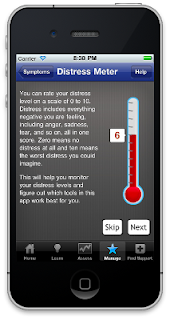First of all, please forgive us for not updating our blog sooner. We have a new blog in the works and haven't wanted to update this one. Our budgets are very limited and programming is very expensive.
A certified dog trainer just emailed us and asked how she could become a certified Service Dog trainer. We sent her a short response and thought it would make an interesting blog post.
Service Dog Trainer Schools
There are a few dozen schools around the country that train Service Dog trainers. Most are small and began with experienced dog trainers (some began with training Military Working Dogs, Police Dogs or other working dogs) who moved into training Service Dogs for disabled individuals and then decided to help train trainers too. One of the best places to learn how to become a Service Dog trainer in the country (and possibly the world) is
Bergin University. If you're really looking for the finest Service Dog training education possible, Bergin is the hands-down go-to school.
There is no "federally recognized" certification for Service Dog trainers. Private schools or individual trainers who train other trainers "certify" their graduates as having passed their individual courses. Those trainers then go on to train Service Dogs and may "certify" that they have passed their training course once they graduate too.
Are there standards for training Service Dogs?
The Service Dog community has come up with
minimum training standards for Service Dogs that we and most other trainers follow. Assistance Dogs International is an internationally-recognized private organization and the small handful of organizations who have earned their prestigious
accreditation are the gold standard of Service Dog training. Unfortunately, those programs aren't capable of supplying Service Dogs for every disabled individual. Without other private organizations and trainers many disabled individuals would be denied Service Dogs.
About Service Dogs and the ADA
The ADA is written to allow disabled individuals to use their Service Dogs in public with as few barriers as possible. If access were not as open, every building, restaurant and dry cleaner in the country could stop disabled individuals with their Service Dogs and demand proof of training. The ADA specifically states that if someone says their dog is a Service Dog they are to be taken at their word, regardless if it has been certified by a state or other authority. See below:
The ADA states in section § 35.136 Service animals part (f) "A public entity shall not require documentation, such as proof that the animal has been certified, trained, or licensed as a service animal."
You can view the full ADA law here:
http://www.ada.gov/regs2010/titleII_2010/titleII_2010_withbold.htm
The ADA is also designed so that disabled individuals may train their own Service Dogs. Program-trained Service Dogs can be very expensive and out of many disabled individual's budget. Some Service Dogs may cost upwards of $10,000. The U.S. Department of Justice recently held open voting to revise the ADA and the updated version was just released last year. It eliminated animals other than dogs and miniature horses and officially included Psychiatric Service Dogs which can help with severe depression and Post Traumatic Stress Disorder (PTSD).
About the Registry
Registering with us voluntary and is not required by law, nor do we provide any legal protection. Please note that we do not certify or authorize anyone to use a Service Animal. The privilege to use a Service or Assistance Animal is granted, under the law, by the Americans with Disabilities Act (ADA) and local governments.
Our focus is to help encourage education, training and exemplary behavior. Since the ADA was written in 1990, some disabled and non-disabled individuals have chosen to either knowingly or unknowingly claim their insufficiently-trained pet is a Service Animal, either by just saying it is, since no documentation is required, and/or by purchasing patches, vests, ID tags or other equipment at local pet stores or online.
Because the federal law states that there is no paperwork required, we were designed with input from the Service Dog community as an attempt to help reduce the number of people abusing the ADA by requiring our Registrants to understand that misrepresenting an animal as Service or Assistance Animal for any reason is not only unethical, it is also illegal. All of our Registrants are required to read and accept the following:
- What is involved with training and using a Service or Assistance Animal
- How important their behavior, and that of their Service or Assistance Dog, is to the general public and other Service and Assistance Animal teams
- The definition of a Service or Assistance Animal
- The Minimum Training Standards for a Service or Assistance Animal
- What is involved with a Public Access Test
- Our Terms and Conditions






























